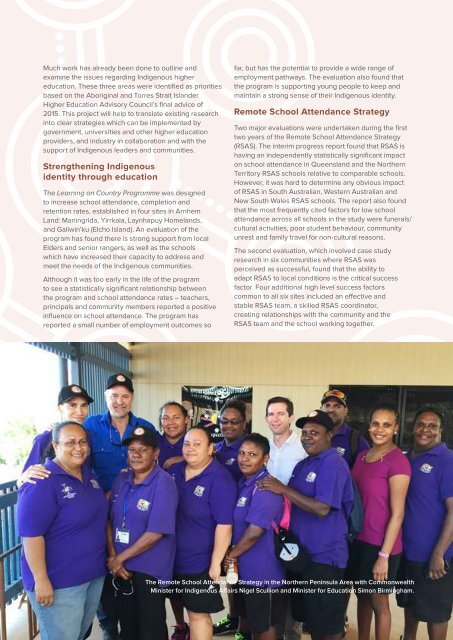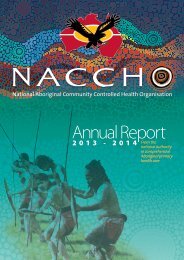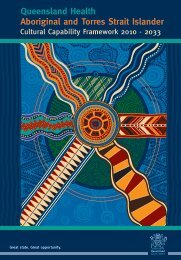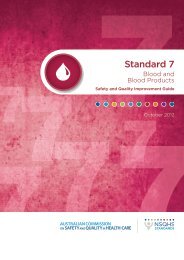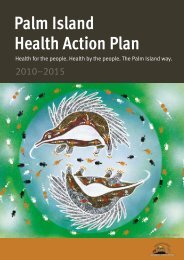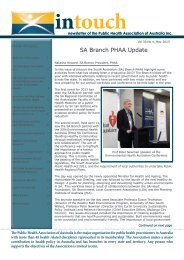CLOSING THE GAP
ctg-report-2017
ctg-report-2017
Create successful ePaper yourself
Turn your PDF publications into a flip-book with our unique Google optimized e-Paper software.
Much work has already been done to outline and<br />
examine the issues regarding Indigenous higher<br />
education. These three areas were identified as priorities<br />
based on the Aboriginal and Torres Strait Islander<br />
Higher Education Advisory Council’s final advice of<br />
2015. This project will help to translate existing research<br />
into clear strategies which can be implemented by<br />
government, universities and other higher education<br />
providers, and industry in collaboration and with the<br />
support of Indigenous leaders and communities.<br />
Strengthening Indigenous<br />
identity through education<br />
The Learning on Country Programme was designed<br />
to increase school attendance, completion and<br />
retention rates, established in four sites in Arnhem<br />
Land: Maningrida, Yirrkala, Laynhapuy Homelands,<br />
and Galiwin’ku (Elcho Island). An evaluation of the<br />
program has found there is strong support from local<br />
Elders and senior rangers, as well as the schools<br />
which have increased their capacity to address and<br />
meet the needs of the Indigenous communities.<br />
Although it was too early in the life of the program<br />
to see a statistically significant relationship between<br />
the program and school attendance rates – teachers,<br />
principals and community members reported a positive<br />
influence on school attendance. The program has<br />
reported a small number of employment outcomes so<br />
far, but has the potential to provide a wide range of<br />
employment pathways. The evaluation also found that<br />
the program is supporting young people to keep and<br />
maintain a strong sense of their Indigenous identity.<br />
Remote School Attendance Strategy<br />
Two major evaluations were undertaken during the first<br />
two years of the Remote School Attendance Strategy<br />
(RSAS). The interim progress report found that RSAS is<br />
having an independently statistically significant impact<br />
on school attendance in Queensland and the Northern<br />
Territory RSAS schools relative to comparable schools.<br />
However, it was hard to determine any obvious impact<br />
of RSAS in South Australian, Western Australian and<br />
New South Wales RSAS schools. The report also found<br />
that the most frequently cited factors for low school<br />
attendance across all schools in the study were funerals/<br />
cultural activities, poor student behaviour, community<br />
unrest and family travel for non-cultural reasons.<br />
The second evaluation, which involved case study<br />
research in six communities where RSAS was<br />
perceived as successful, found that the ability to<br />
adapt RSAS to local conditions is the critical success<br />
factor. Four additional high level success factors<br />
common to all six sites included an effective and<br />
stable RSAS team, a skilled RSAS coordinator,<br />
creating relationships with the community and the<br />
RSAS team and the school working together.<br />
The Remote School Attendance Strategy in the Northern Peninsula Area with Commonwealth<br />
Minister for Indigenous Affairs Nigel Scullion and Minister for Education Simon Birmingham.<br />
<strong>CLOSING</strong> <strong>THE</strong> <strong>GAP</strong>: PRIME MINISTER'S REPORT 2017<br />
•47•


